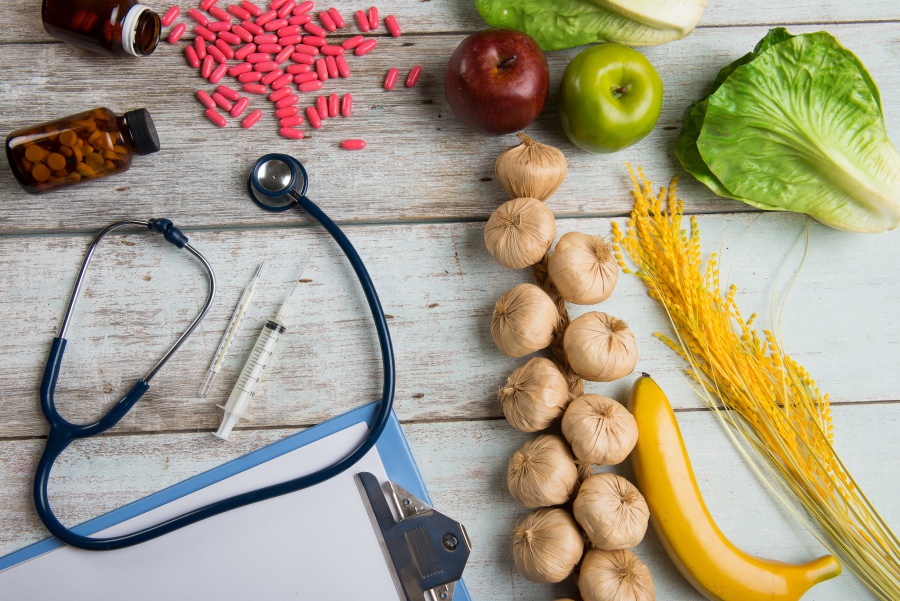Prevention: A Powerful Tool Against Cancer

Cancer is drawing increasingly closer to our lives. Whether it is the positive diagnosis of a relative, acquaintance or co-worker, the reality is that no one is exempt from being affected by this disease. Oftentimes, it only takes a few regular medical exams and changes to your lifestyle to improve your general health and prevent cancer.
Changes That Save Lives Aside from the tests recommended by your doctor, there are other simple lifestyle changes that could help you prevent cancer. Some of these changes in preferences and eating habits are simpler than others, but it's worth giving them a try. It’s your life that’s on the line. We share a few recommendations below.
- Get all the tests recommended by your doctor on a regular basis. A delay of just few months in a routine exam could make a huge difference.
- Stop smoking and avoid all forms of tobacco. Tobacco smoke contains about 7,000 chemical substances, out of which over 70 are carcinogens. Besides, remember that smoking not only affects your health, but that of everyone around you.
- Limit your alcohol consumption. There is a link between alcohol consumption and various types of cancer, such as colorectal cancer, esophageal cancer, head and neck cancer, liver cancer, and breast cancer.
- Protect your skin from the sun. Make sure that you're using sunblock with an SPF factor of 30 or more.
- Avoid artificial tanning. Indoor tanning beds could cause skin cancers, such as melanoma, and exposing yourself to ultraviolet radiation may result in cataracts or ocular melanoma (eye cancer).
- Achieve a healthy weight. Consult with a nutritionist to help you achieve your ideal weight, according to your age and height.
- Keep an active lifestyle. Make a habit of walking and doing physical activities. It is recommended that you do 150 minutes of moderate activity per week (30 minutes per day, 5 days a week), or 75 minutes of intense activity (15 minutes a day, 5 days a week).
Tests and Vaccines The Centers for Disease Control and Prevention (CDC) and the American Cancer Society have also recommended several preventive tests and vaccines that could help you outline a prevention plan. Some of the tests and vaccines you should consider are:
- HPV Vaccine: It should be administered to girls and boys of 11 - 12 years of age, before they are exposed to the virus. In some cases, it is recommended for those up to 26 years old.
- Papanicolau: From ages 21 to 29 years old, this test should be done every 3 years. Starting at 30 years old, the Papanicolau test can be done in combination with the HPV test every 5 years. Another reasonable option is to have the test done every 3 years, from 30 to 65 years old.
- Screening for cervical cancer: Recommended for those 21 years of age or older.
- Mammogram: This test should be done starting at 45 years old, but preferably starting at 40 years old.
- Screening for colorectal cancer: There are several alternatives to have this screening done, starting at 50 years old, such as colonoscopy, fecal occult blood test, and colonography.
There are other tests with more specific requirements, such as lung and prostate cancer screenings, which you should talk with your doctor to decide if you need to have these screenings done. This will mostly depend on your medical and family history.
Transform Your Menu Dietary changes deserve a separate section. In fact, the World Cancer Research Fund estimates that almost 20% of the cancers diagnosed in the United States are preventable, since they are linked to poor dietary habits, lack of physical activity, body fat, and excessive consumption of alcohol. As you can see, a large part of your health is in your own hands. Prevention, as well as having an adequate insurance for diseases like cancer, will provide the peace of mind you need. To receive further guidance, call 787.294.8079 or visit popular.com/care4cancer.
Sources: Centers for Disease Control and Prevention (CDC) and American Cancer Society. Insurance products are not deposits, are not insured by the FDIC or other federal government agencies, are not guaranteed by the Bank or its affiliates, and may lose value.


